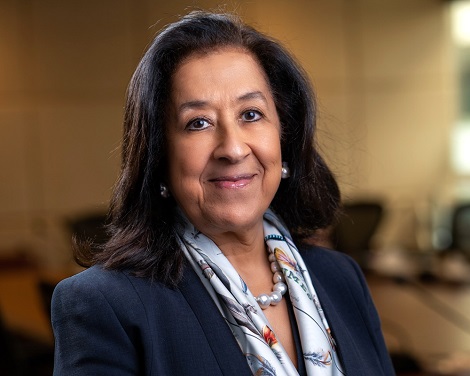February 2022 
The Saudi British Bank (“SABB”) recorded a net profit after Zakat and income tax of SAR 3,202 million for the year ended 31 December 2021. This is an increase of SAR 7,369 million or 177% compared to the loss of SAR 4,168 million for the same period in 2020.
Operating income of SAR 7,938 million for the year ended 31 December 2021, a decrease of SAR 940 million, or 10.6%, compared to SAR 8,878 million for the same period in 2020.
Loans and advances of SAR 167.6 billion at 31 December 2021, an increase of SAR 14.3 billion, or 9.3%, from SAR 153.2 billion at 31 December 2020.
Customers’ deposits of SAR 186.8 billion at 31 December 2021, a decrease of SR 2.3 billion, or %1.2 compared with SAR 189.1 billion at 31 December 2020.
Investments of SAR 64.9 billion at 31 December 2021, an increase of SAR 4.1 billion, or 6.7%, from SAR 60.8 billion at 31 December 2020.
Total assets of SAR 272.4 billion at 31 December 2021, a decrease of SAR 4.1 billion, or 1.5% from SAR 276.5 billion at 31 December 2020.
Earnings per share is SAR 1.56 compared to SAR (2.02) for the corresponding period of the previous year.
Commenting on the 2021 results, Ms. Lubna Suliman Olayan, Board Chair of SABB said:
“During 2021, we have had to deal with the additional challenges and uncertainties posed by the global COVID pandemic and the related starts and stops of the global economy. However, the Saudi economy, and in particular the banking sector, has demonstrated resilience in dealing with these hurdles, and SABB took on those challenges from a position of financial and strategic strength, and has now pivoted back to growth mode.
Early in 2021, we concluded the final elements of the integration of SABB and Alawwal banks. The importance of the transaction – the first banking merger transaction in the Kingdom – was the culmination of over three years of hard work and effort from dedicated individuals across the organisation and beyond, and has resulted in SABB being a stronger entity with a single shared culture and a stronger balance sheet, better enabling us to meet the growing needs of our customers and demands of the Kingdom’s Vision 2030 transformation programme.
During the year, we also committed to our long-term strategic goals and the steps we will take to achieve them. 2021 marked the start of the investment phase and it was pleasing to see solid progress in developing some of the key enablers for our longer term goals, from setting up an in-house digital office to making more operational and tactical enhancements, such as expanding our mortgage offering. While doing that, we also seized the opportunity to participate in some key landmark transactions, including acting as one of the lead arrangers on the SAR 14 billion financing to fund the Red Sea Development project.
SABB’s financial performance during 2021 includes a return to profitability, continued loan growth, stabilizing revenue trends and improvements in asset quality. We generated SAR 3.9 billion of net income before Zakat and income tax for the year, SAR 7.9 billion of revenue, and grew our customer lending portfolio by 9% to SAR 174 billion. Our financial results are robust proof-points of our resilience and progress made in 2021.
With ESG woven into both our strategy and the long-term transformation goals of Vision 2030, during the year we focused on formulating our ESG strategy. This initiative marks a critical transition for SABB and our customers, because we believe that a firm commitment to ESG is absolutely necessary to achieve sustainable growth.
I am especially grateful for the diligence and professionalism of my board colleagues and our senior management committee, and I would also like to extend a sincere note of gratitude to our staff at all levels, who are the driving force behind the accomplishments of the bank during 2021. And, finally, I extend our gratitude for the guidance and support of the Saudi government, especially our regulators at the Saudi Central Bank and the CMA.”


























































